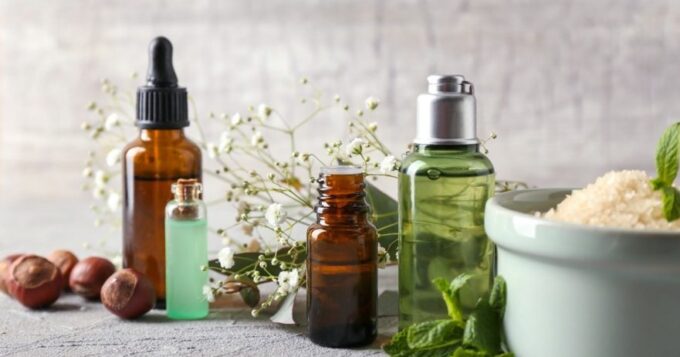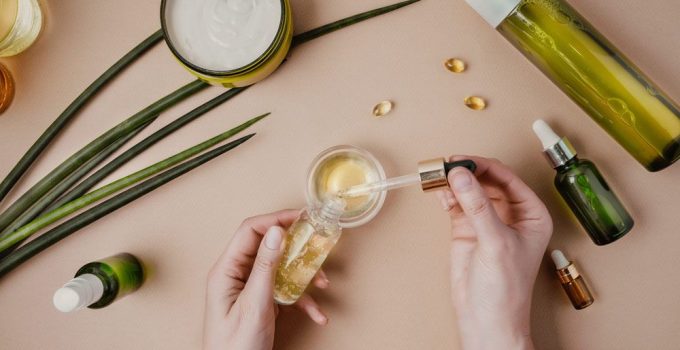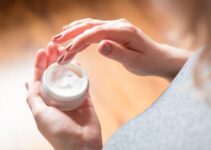To understand what the word “organic” means in the context of beauty and cosmetics, we first have to understand its meaning in general. In terms of agriculture, it means the plants are cultivated naturally, without additional synthetic fertilizers. The goal is to get healthy natural products that don’t contain anything synthetic and to minimize the pollution that happens during the cultivating process. The person who takes care of it often uses natural compost made of leftover foods and grass, instead of pest control chemicals. Knowing that a lot of cosmetic products are made of natural ingredients, we can always look for organic solutions too, to reduce our carbon print in the world. That means also the packages are biodegradable and sustainable and good for recycling. But, does every cosmetic brand follow those goals? Surely not, because not every product can be replaced with an organic version.
But, surely, some of the body lotions, soaps, and hand creams can be replaced with more efficient solutions, and if you see this site, you will find a lot of organic replacements for them. Consumers always associate these products with purity, efficiency, and powerful products that are better than the commercial ones.
We can find the label “organic” on a lot of things today, even on toilet cleaning products, but what does it really mean?
A great marketing tool

Source: medium.com
Sadly, this is the most common case when it comes to labels. Many people don’t understand the concept of organic production, no matter what the product is, and they consider it’s made of cold-pressed ingredients, mixed with natural oils and water solutions, they can use without any risk. But the truth is that in this case, it refers to the chemistry of the molecules of carbon, as a basic constitution of every living matter, and it’s a part of organic chemistry. The new meaning of the word is about farming without pesticides and fertilizers.
That’s why the use of this word is a marketing tool, and many lab examinations showed that the products labeled with it are the same as those who aren’t. Even when you take herbs from a distant mountain, you can’t use them directly on your skin, and the whole production process throws away any try to promote some cosmetic product as organic, except the cold-pressed oils.
The fact that there is no method that will prove some apple or tomato is organic, there is a lot of space for frauds, meaning the farmers are charging more money for something that may or may not be organic.
But, how cosmetics fit in this concept?
The truth is that the companies can indeed use organic products to squeeze down the oils and essentials, and then work on their formula. But this is the moment where all those stories stop. Cosmetics production follows high standards. It’s even more important to know that natural-based cosmetics can be dangerous, and cause an allergic reaction, redness, rash, and many other skin conditions, because not every skin is the same. But, the consumers always fall for the words “organic” and “natural”, and the brands know that. So, we once again go to the moment when we realize it was all about marketing.
Also, the label “organic production” is for agricultural products. In cosmetics, there are many more chemical ingredients, instead of natural, that should stabilize the formula, and make the product durable enough, so you can use the whole bottle or container. If they don’t do that, your cream or shampoo will spoil in a week, and you will pay a significant amount of cash to buy it, just to throw it away because you can’t use it. There is no method that will produce an organic stabilizer or preserve products, so the claims your new serum is completely organic are not true – or we can say that the trends made the people believe in it, without checking how the products are produced.
What to use on my face then?

Source: eluxemagazine.com
Another popular misconception about organic products is that you can use tomato slices, lemon juices, or cucumber peels as a face mask. The dermatologists will highly recommend you not to do that because they contain a lot of acids and other ingredients that can damage the skin, and cause burning. Your face doesn’t need a bowl of salad. It needs a proper skincare routine that includes cleansers, balms, serums, and moisturizers.
Nowadays, you have plenty of Instagram and TikTok accounts that can teach you how to take care of yourself without spending a whole wealth on wrong labels, and get the results you want.
Learn how to read the descriptions
This is a crucial skill you have to adapt as you wish to expand your routine. We understand that most of us want to be responsible for the environment, but some of the things we use every day can’t be completely organic. As we said, the labels refer either to the chemical base, or the origin of some of the ingredients used in some stage of production.
The standards require every ingredient listed on the package, and you can easily see what the new product contains. And don’t freak out when you can’t even read most of them. They are all approved and widely used in the skincare industry.
The disappointment

Source: organic-business.com
Maybe this article wasn’t what you expected it to be. But it’s always to know the things how they really are, instead of holding to labels. Organic is great, but when it comes to agriculture and food we use. But, in the cosmetic industry, we already explained what it means. Surely, you can always go for the products that at least contain something organic, instead of synthetic ones, if that’s what you want to do.
The truth is that this label helped many brands profit very high from the people that don’t completely understand the whole concept. But, luckily, there are plenty of sources we can use to inform ourselves, and beauty apps that with a simple scan list all the ingredients a product contains.







